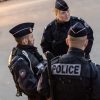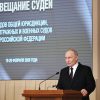TikTok has banned a swathe of hate speech from its platform, just days after the company announced a crackdown on the conspiracist QAnon movement.
Explicitly hateful ideologies, such as neo-nazism and white supremacy, are already banned on TikTok. Now, the moderation will be extended to cover “neighbouring ideologies”, such as white nationalism and white genocide theory.
TikTok is also taking aim at “the spread of coded language and symbols that can normalise hateful speech and behaviour”.
Those codes hit the news this week when Sky History axed a reality show, The Chop, after viewers raised concerns that a contestant’s tattoos could have white supremacist implications. The number 88 is often used as code for “HH”, or Heil Hitler, for instance, while the number 14 refers to a 14-word-long white supremacist slogan.
The video-sharing platform announced the news with a sideways swipe at Facebook, which this month reversed a longstanding position allowing Holocaust denial on its social networks. “We’re proud that we have already taken steps to keep our community safe, for example, by not permitting content that denies the Holocaust and other violent tragedies,” TikTok said.
“We know there’s always more we can do, which is why we are taking further action to remove misinformation and hurtful stereotypes about Jewish, Muslim and other communities,” the company continued.
“This includes misinformation about notable Jewish individuals and families who are used as proxies to spread antisemitism. We’re also removing content that is hurtful to the LGBTQ+ community by removing hateful ideas, including content that promotes conversion therapy and the idea that no one is born LGBTQ+.”
Campaigners at Sleeping Giants, an anti-hate campaign, welcomed the policy change, but said its effectiveness remained to be seen. “The real test, as always, will be enforcement,” they tweeted. “Compare this to Facebook and YouTube, which only took steps like this when pushed by advertisers or when it was politically expedient.”
TikTok’s record on enforcing such bans is patchy. The company’s recent crackdown on QAnon, which involved several hashtags being banned from the platform, is one recent example: the ban on the movement actually dates from July, but a report from this month revealed the existence of multiple tags that had slipped below the radar.
Those tags, which included misspellings of popular QAnon-related terms, were removed in the latest wave of bans.






















































Свежие комментарии